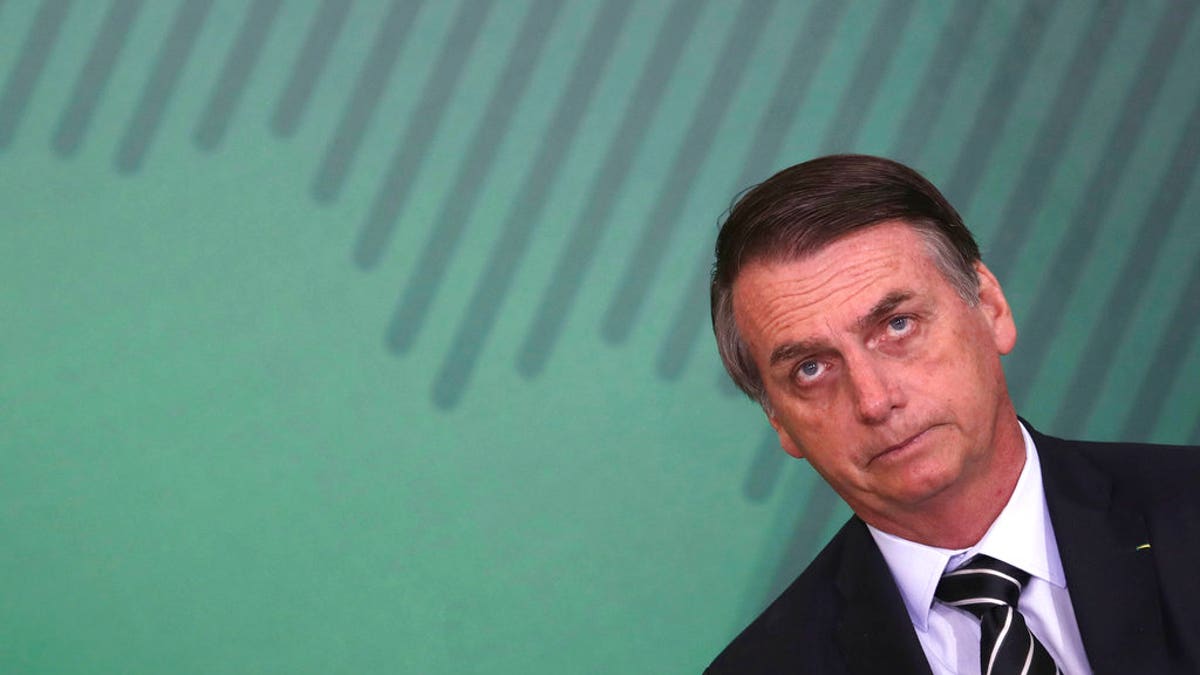
Brazil's President Jair Bolsonaro has made tackling crime in his country central to his policy. (AP)
SAO PAULO – Like millions of victims of rampant gun crime in Brazil, Claudio Sotero Júnior is clear about what he wants: his own gun.
His store near São Paulo selling bodybuilding supplements has been robbed at gunpoint six times since he opened it in 2006. Three years ago, the 41-year-old had to give up teaching kickboxing classes to pick up his wife from work every day after gunmen robbed and sexually assaulted her at a bus stop.
If it weren’t for Brazil’s strict firearms legislation, he said, he’d buy a Glock pistol to keep at work, and guns for his wife, sister and parents to defend themselves in what has become the world’s most murderous country.
Brazil racked up nearly 64,000 homicides in 2017, the highest overall number in the world. Over 70% of those were committed with firearms, widely available to criminals on the black market. Here in São Paulo, a megalopolis of 12 million people, over a quarter of residents say they have been held up at gunpoint at some moment in their lives, according to a study this year by the city’s business school Insper.
“It’s not fair, we’ve become hostages in our own country,” said Mr. Sotero Júnior. “We can’t take it anymore.”
Now, Brazil is set to embark on an experiment that will determine what happens when you loosen gun restrictions in a country battling an overpowering wave of gun crime.
To read more from The Wall Street Journal, click here.







































